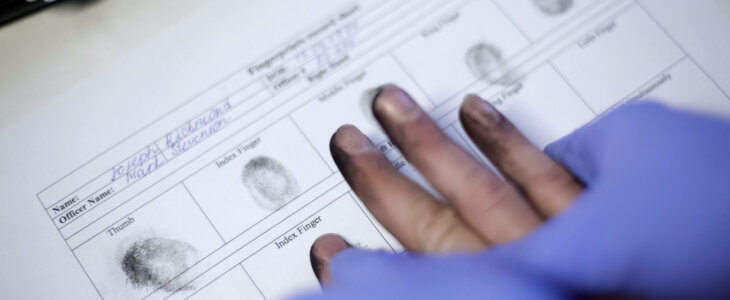A criminal conviction can follow you for the rest of your life. The collateral consequences of a criminal record can be far-reaching. You may have trouble getting a job or renting a home, depending on the specific criminal charges on your record. Our North Carolina criminal defense lawyers discuss what appears on your criminal record after an arrest and how you can clear your record to avoid issues in the future.
What Appears on a Criminal Record After an Arrest in North Carolina?
Arrest records or criminal records are official documents that detail an individual’s history with law enforcement. Your criminal record generally contains:
- Your full name and address
- Personal identifying information, such as age, gender, race, height, etc.
- A mugshot taken when you were arrested
- Fingerprints made during processing at the jail
- A history of indictments and criminal offenses
- Outstanding warrants and arrest history
- Records indicating the disposition of each criminal case
Much of the information on your criminal record is public record. That means anyone can request to see the information.
Some arrest records may be exempt from public access. Examples include sealed and expunged records, ongoing investigations, records of minors, and sensitive personal information, such as a Social Security number.
The matter stays on your record once you are arrested or charged with a criminal offense. Even if you are acquitted or the charges are dismissed, the arrest remains on your criminal record. However, you may be able to have arrest records and convictions expunged from your record.
What Is an Expungement of a Criminal Record in North Carolina?
An expungement or expunction is the legal process of clearing your criminal record from charges and convictions. The expunged records are not wiped clean but sealed and destroyed in the public records. A government office may maintain expunged records, but the records can only be accessed by certain government agencies, prosecutors, and law enforcement personnel.
Numerous non-violent misdemeanors and felonies are eligible for expungement. Most misdemeanor convictions can be expunged after five years instead of 15 years. The wait time to expunge a felony charge is ten years instead of 15. No limit exists on how many dismissed cases can be expunged from your record.
What Are the Criteria for Having a Criminal Record Expunged in North Carolina?
You must meet specific criteria to have your criminal record expunged. The criteria include:
- You cannot have any pending criminal charges or open criminal cases
- You have met the required waiting period to have the criminal charge expunged
- You cannot have any pending criminal summons or pending warrants for your arrest
- You must not be on probation or parole with any court
- **You can provide proof that you paid all court-ordered costs
Before you begin the expungement process, you may want to meet with an experienced North Carolina expungement lawyer. An attorney can review your criminal record and advise whether you qualify for an expungement. The lawyer can also advise you on the steps for expungement to avoid mistakes.
Once your criminal record is expunged, the convictions and arrests should not appear in a public search.
Schedule a Consultation With a North Carolina Criminal Defense Lawyer
A criminal record can result in long-term collateral consequences. The best way to avoid a criminal record is to work with a North Carolina criminal defense attorney to avoid a conviction when possible. If you have a criminal record, you may qualify for an expungement. Contact Greene Wilson Crow & Smith, P.A. to discuss your options for clearing your criminal record.

